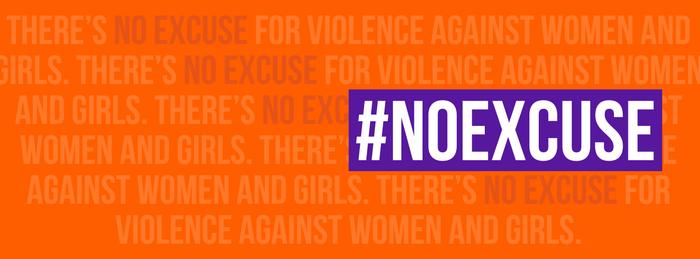International Day for the Elimination of Violence against Women
NUJ condemns the violence and abuse targeted at women globally, whilst standing in solidarity with women journalists reporting from conflict zones and under repressive regimes.

25 November is the United Nations International Day for the Elimination of Violence against Women.
The UN Declaration on the Elimination of Violence Against Women issued by the UN General Assembly in 1993, defines violence against women as “any act of gender-based violence that results in, or is likely to result in, physical, sexual or psychological harm or suffering to women, including threats of such acts, coercion or arbitrary deprivation of liberty, whether occurring in public or in private life.”
Key figures:
- 16% to 58% of women globally experience technology-facilitated gender-based violence. Generation Z and Millennials are the most affected
- Globally, female genital mutilation has increased by 15% compared to data from eight years ago.
- Every 10 minutes, a woman is killed
Journalists Safety Tracker
This month, the NUJ launched its online tool to capture incidents of harassment and abuse, including those aimed at women journalists both online and in-person.
We are urging members and non-members to use the reporting tool, allowing the union to build an evidence base that supports lobbying efforts to end the targeted sexist and harmful abuse aimed at women.
The International Federation of Journalists (IFJ) has urged newsroom policies that include measures to prevent and address harassment, discrimination, and violence, as well as provide support services for targeted journalists, including freelances. According to IFJ records, 14 women journalists were killed last year in the course of their work. The federation has urged the adoption of UN Security Council Resolutions 2222/2015 and 1738/2006, condemning international attacks against journalists and media workers in situations of armed conflict.
Commenting on the need to implement the Convention on the Elimination of All Forms of Discrimination against Women (CEDAW) and the ILO Convention C 190 on violence and harassment in the world of work, IFJ President Dominique Pradalié, said
"These instruments provide a strong legal framework for protecting women journalists' rights, including the right to freedom of expression and the right to work free from violence, including in conflict zones"
She added "World governments must swiftly act to put them in practice in addition to our draft international convention on the safety and independence of journalists".
Access IFJ resources and find out more on their campaign to end online trolling.
Hear from NUJ members sharing more on their experiences, in the union’s safety video.
Safety toolkit
The NUJ Journalists Safety Toolkit provides important information on staying safe online, and can be accessed on-the-go. Through our campaigning on journalists’ safety, we continue to highlight the abuse encountered by journalists across the UK & Ireland, condemning attacks against our members including through recent riots.
International solidarity
The union sends a message of solidarity to women worldwide facing persecution for condemning repressive regimes that threaten the safety of women. As women in Afghan face daily oppression under the Taliban regime, we recognise the immense bravery of women journalists continuing their work in hostile and difficult conditions.
In Iran, the defence of human rights through protests and reporting has led to the imprisonment of both activists and journalists. UK-based Persian journalists continue to be targeted by the Iranian state, in action condemned by the NUJ.
Women journalists are among those killed in Gaza since 7 October 2023. As we extend our solidarity to the Syrian and Palestinian women journalists killed, the NUJ reminds members and branches of the IFJ' Safety Fund used to provide essential aid and equipment to journalists reporting on the war. Please make a donation.
The IFJ has published guidelines for media and unions to combat online harassment of women journalists.
NUJ extra
If you are experiencing financial hardship as a result of domestic abuse you can get in touch with NUJ Extra to seek support, either directly or through your branch welfare officer.
The NUJ Equality Council supports the work of the wider union on gender equality all-year round through an intersectional approach.
In September, following publication of guidelines on reporting on rape by the End Violence against Woman Coalition, Professor Chris Frost, Ethics Council, Ethics council chair, said: “Journalists play an important role in informing the public through their reporting and language used in coverage of rape must be accurate, ensuring adherence to the NUJ’s Code of Conduct.
“With a duty to carry out their work ethically, journalists should avoid harmful stereotypes that portray false narratives of rape, and crucially, victims too. The NUJ encourages reporters to review the new guidance and ensure responsible journalism at all times.”
What you can do
- Join our Equality, Diversity and Inclusion network for updates, resources and information sharing. Email [email protected]
- Encourage employers to take action to protect the safety of women at work, including domestic abuse policies, pay campaigns and robust health and safety assessments that include late and lone working risks.
